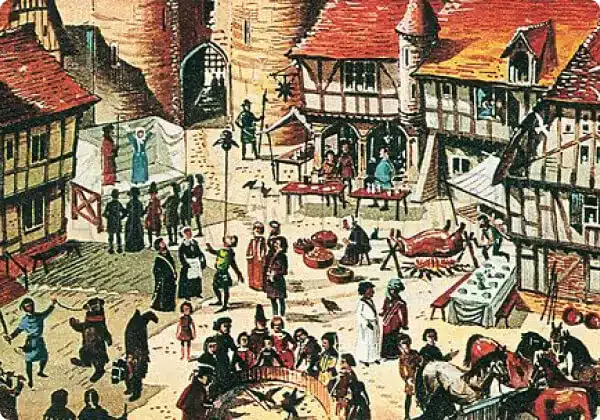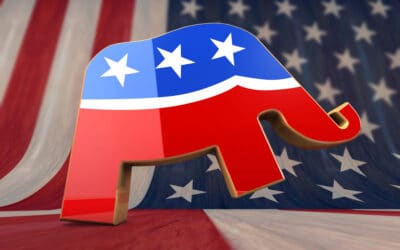So, what is capitalism? The answer will depend on who’s being asked. Language, like markets, basic law, and customs, is a spontaneous order. No one plans it. Words drift in their meaning in ways that probably can’t be fully explained. Language is a tool that people use to think and communicate, so it’s adapted according to needs, changing circumstances, and even confusion.
That doesn’t mean we can say nothing about words like capitalism. My views on that word have changed over the years; I once contributed to a book called Markets, Not Capitalism. The book was meant to show that the free market differs from capitalism. Is it right? Again, that depends on how one defines capitalism. As far as I can tell, most people who dislike capitalism also dislike the idea of a market-based society. Some prominent pro-market thinkers, Nobel laureate F. A. Hayek among them, disliked the word for a variety of reasons.
At any rate, the word is not going away. Since no one controls the language, we should put communication before personal preferences. Let’s define our terms clearly and then talk about reality.
Despite variation in the definition of capitalism, most people would agree that market orientation is at its heart. They evaluate the market differently, but it is the market that they are evaluating. So we have some common ground, even as we disagree over whether capitalism is a good or bad social arrangement or whether it conceptually includes or excludes a given practice.
I, along with many others, consider capitalism to be the social arrangement in which people are free to engage in the production and exchange of goods and services, typically for money. Left unmolested, that is what people do. Those activities generate prices, which reflect supply and demand and guide further action. To live is to act, which is to aim at ends by deploying means, which is to value. The root of this never-ending process is the wish to sustain life and to live in a particular way. (See the work of Carl Menger, Ludwig von Mises, and Ayn Rand for details.)
The institution of interpersonal exchange logically has presuppositions. It stands on a foundation. It presupposes that persons own themselves and the things they nonaggressively obtain; it also presupposes the security of contracts. These things can be violated in practice, but they are departures from the logic of the system. Historical capitalism developed over a thousand years as persons, their property (including their bodies), their contracts, and their enterprises came to be more and more respected—that is, as political power decentralized and, consequently, diminished, thanks in part to jurisdictional competition, that is, the power to vote with one’s feet. (People disliked paying taxes for war and having their trade and investments disrupted.) Growing religious toleration played an important role in this process of individual liberation and spreading cooperation.
Where property and contracts became more secure, per capita wealth dramatically increased, setting an example for others. As Adam Smith put it, “Little else is requisite to carry a state to the highest degree of opulence from the lowest barbarism, but peace, easy taxes, and a tolerable administration of justice; all the rest being brought about by the natural course of things.”
This is not to say that injustice and aggression disappeared abruptly and completely. Of course, it did not. Who could have expected that? It would take time. Another way of saying this is that capitalism—to be clear, that means laissez-faire or free-market capitalism—was not fully achieved anywhere. It still hasn’t been. But it would be wrong to attribute the great wealth generated by capitalism to injustice such as slavery and conquest. Advanced civilizations of the past conquered, plundered, and enslaved, but they did not produce astonishing, sustained, and widespread wealth. Capitalism and classical liberalism in Western Europe and America did something different, something special.
Societies can be judged by how close they came to achieving capitalism. We can distinguish particular practices and institutions as either capitalist or anticapitalist. It follows that crony capitalism, state capitalism, and political capitalism, etc., are not capitalist variations but moves away from capitalism (that is, from self-ownership, property rights, contract, and free exchange). Those labels are contradictions in terms because they entail limits on peaceful, productive market interaction. The predatory, which supposedly acts in the name of the collective, in effect makes itself the senior part-owner of what was or should have been private property. The system is no longer a fully market system, even if people who own capital ask for the intervention. Thus free-market capitalism is a redundancy.
For example, a political arrangement in which slavery and slave markets exist does not qualify as capitalism. Why not? Because in that basic respect, the arrangement does not fully embody self-ownership, property rights (which flow from self-ownership), and free exchange. Southern slave holders claimed that “their” slaves were property, but that was a category error because persons can be property owners, not property. Good Lockeans, the abolitionists called the slave holders “man stealers.”
Similarly, a political system in which politicians and bureaucrats may interfere with people’s property and free exchange through taxation, regulation, trade barriers, subsidies, government ownership, etc., should not be called capitalist. It would be a mixture of capitalism and interventionism or socialism.
We can sum up by saying that only laissez-faire capitalism—the consistent separation of state and economy—qualifies as real capitalism. Anything less than laissez faire is less than capitalism. The government cannot regulate an economy, which is an abstraction. What it can do is restrict real individuals in their peaceful, productive market interactions. Restriction requires the use or threat of aggressive force and violence. In contrast, a capitalist society is a humane society.
Call it what you will, the system that respects our freedom to engage in mutually beneficial market relations—and its prerequisites—is worth defending against its Classic Marxist and Marxist Lite detractors, who have to distort categories like “exploitation” to make their spurious case. Capitalism, despite not being fully embraced, ushered in an era of unprecedented personal freedom and sustained, widespread wealth. Capitalism is anti-exploitationism.
(I have not reinvented the wheel. Thus related reading: “The European Miracle” by Ralph Raico, “Reconsidering Gabriel Kolko: A Half-Century Perspective” by Robert L. Bradley Jr. and Roger Donway, “Capitalism, Socialism, and ‘The Middle Way’: A Taxonomy” by Bradley and Donway, “Beyond ‘The Money-Making Personality’: Notes toward a Theory of Capitalist Orthopraxy” by Roger Donway (Journal of Ayn Rand Studies 21:1 July 2021) and The Libertarian Mind by David Boaz (especially chapter 2: “The Roots of Libertarianism.”)

































